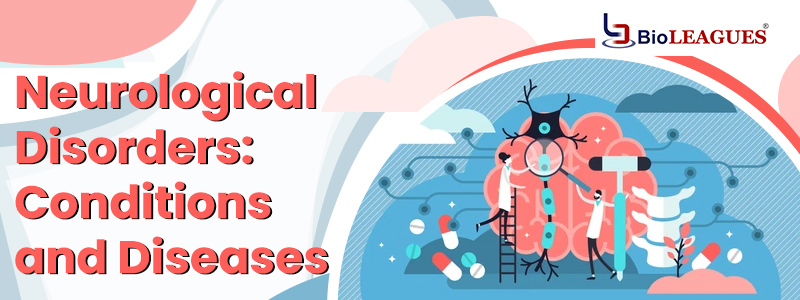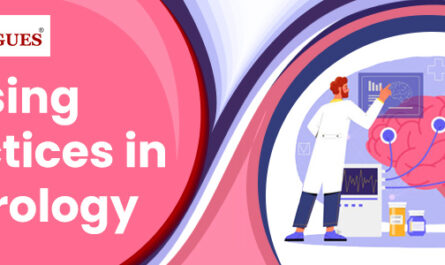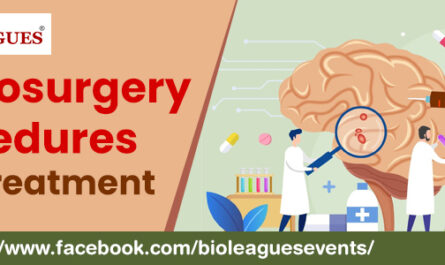Neurological disorders are ailments that affect the central and peripheral regions of the human body’s nervous system.
This comprises body parts such as the-
- spinal cord,
- cranial nerves,
- peripheral nerves,
- nerve roots,
- the autonomic nervous system,
- neuromuscular junction, and
- Muscles.
- Brain
Across the world, people, in the hundreds of millions, are affected by neurological disorders. Over six million people die from stroke each year and over eighty percent of these deaths occur in low- and middle-income countries. Over fifty million people suffer from epilepsy worldwide. It is estimated that there are close to fifty million people worldwide with dementia with a little over seven and a half million new cases each year – among which Alzheimer’s disease happens to the most common cause of dementia and may contribute to anywhere between sixty and seventy percent of cases.
The prevalence of migraines is over ten percent of the world’s population. Attending this conference, which is one of the most highly-anticipated neurological disorders meetings coming up, is sure to enlighten you on these topics to the fullest extent.
These disorders include –
- Parkinson’s disease
- Epilepsy,
- Brain tumors
- Multiple sclerosis
- Cerebrovascular diseases such as stroke,
- Neuro infections,
- Migraines and all types of headaches,
- Alzheimer’s disease (as well as other dementias),
- Traumatic nervous system ailments caused by head trauma, along with
- Malnutrition and resulting neurological disorders.
Common Neurological Disorders
- Headaches
Perhaps, one of the most common of all neurological disorders is headaches. There are various types of headaches, such as migraines, cluster headaches, and tension headaches. When the headache occurs repeatedly, it is a clear indication that a visit to the doctor is in order, as repetitive headaches can be a symptom of a serious underlying condition that needs to be identified and treated quickly.
Some of the most common causes of recurring headaches are –
- arterial hypertension,
- infections,
- temporal arteritis (blood vessels in and around your scalp become inflamed)
- Tumors.
Usually, doctors discuss symptoms to help patients determine what is causing their headaches. If they find that the patient is just suffering from a migraine, they may prescribe medication to relieve their symptoms. If the patient’s condition is severe, such as temporal arteritis, the doctors often prescribe a steroid to reduce the inflammation. The medicine will help the patient avoid complications such as vision loss.
- Strokes
Stroke, which affects close to thirteen million people worldwide each year, occurs when you sustain brain damage as a result of damage to the arteries leading to and inside the brain. It is usually difficult to anticipate a stroke, but the signs that you might have a stroke are –
- blurred vision
- Confusion, speech difficulties or difficulty in understanding.
Taking part in neurology workshops such as this one is sure to get you up-to-date on all the research studies being carried out on strokes.
- Dizziness or Loss of Balance
Insensitivity or frailty of the face, arm, or leg, particularly on one side of the body.
- Severe Headache
When doctors see people who have had a stroke, their priority is to help them prevent a second stroke. They often do this through medication, which may include blood thinners or medications to treat underlying heart problems, but it depends on the patient’s particular situation. Patients can lower their risk of stroke by exercising for thirty minutes a day, five days a week, and eating a healthy diet that prioritizes fruits and vegetables and limits processed foods.
These lifestyle changes can help you control major stroke risk factors, such as –
- diabetes,
- heart disease,
- heavy alcohol consumption,
- arterial hypertension,
- high cholesterol,
- obesity and lack of exercise, and
- Smoking.
- Seizures
Seizures are fluctuations in the electrical activity of the brain and affect about fifty million people worldwide. The symptoms of a seizure can differ based on the severity of the seizure, nevertheless, the most common include signs include –
- cognitive or emotional signs, including paranoia, anxiety, or déjà vu;
- frequent losses of consciousness or awareness;
- temporary confusion;
- Ungovernable jerky gestures of the arms and legs.
After a seizure, patients must see their doctors. Quick treatment and early medication can help control seizures. It will avoid long-term complications such as memory loss and brain damage. A seizure is often the result of epilepsy, but can also occur because of –
- Alcohol abuse or withdrawal,
- Head trauma that results in -
- Bleeding within the brain,
- High fever,
- Lack of sleep,
- Low blood sodium level,
- Excessive use of medicines, such as anti-depressants and pain relievers.
This neurology symposium will go into detail about this neurological condition, its symptoms, causes, and treatment options.
- Parkinson’s Disease
This condition is a progressive ailment of the nervous system that affects the movement of the body. Usually, it begins to affect people around the age of sixty and symptoms gradually worsen over time. Common symptoms include –
Constipation
This can happen any time during Parkinson’s disease, sometimes even decades before the patient begins to notice experiencing symptoms of motor decline.
Muscle Stiffness
Stiffness in the muscles can occur throughout the body. In some cases, it may be difficult to rotate the arms while walking.
Declining Sense Of Smell
A lot of people suffering from Parkinson’s disease experience a declining capacity to discern scents.
Stiff Face
Particularly in the initial stages of Parkinson’s disease, the patient’s face may start to show little or no expression.
Speech Changes
The patient’s speech may become limp or cloudy.
Tremors
Usually starts in the hands or fingers.
Doctors tend to diagnose Parkinson’s disease during a visit where the patients discuss their symptoms and have a physical exam. In many cases, patients can relieve symptoms and effectively manage Parkinson’s disease with medication. To know more about Parkinson’s disease, it is suggested that you take part in one or more high-level neurology events.
- Dementia
Dementia is a general diagnosis that describes a group of conditions, including Alzheimer’s disease, that can cause the brain to fail. It becomes more likely with age, causes continued loss of brain tissue, which can affect –
- behavior,
- emotions,
- memory,
- perceptibility,
- Thought.




